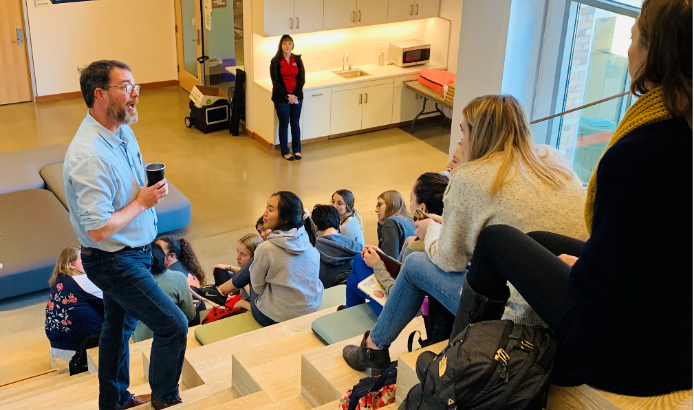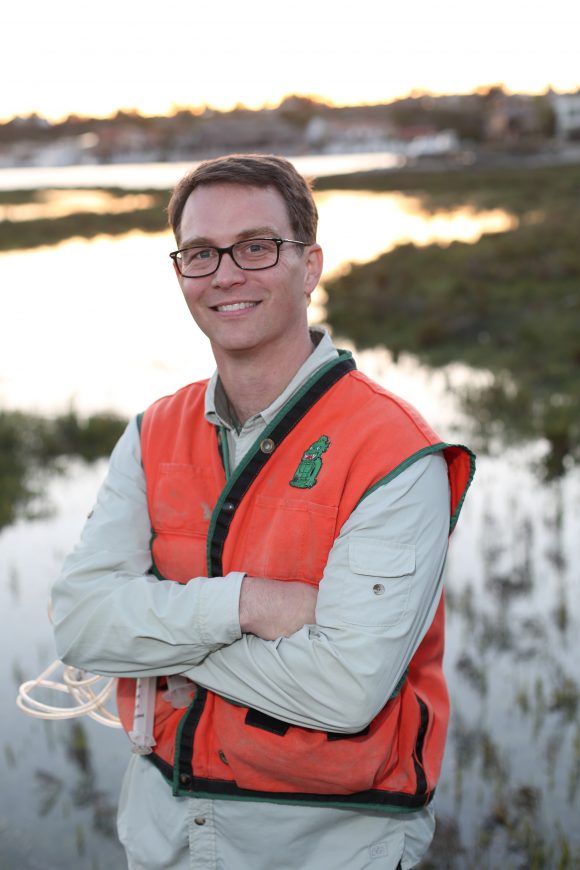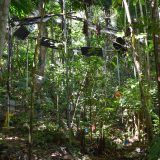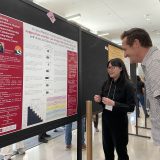
Meet the New Dean: Jason Keller, Ph.D. Congratulations to Dr. Keller on being selected as Interim Dean of Schmid College
January 7, 2019
 Chapman University has selected Dr. Jason Keller as the interim dean of the Schmid College of Science and Technology. He replaces Andrew Lyon, Ph.D., who has served as dean of Schmid College for the last four years and has been appointed to lead the University’s new Fowler School of Engineering, as its founding dean.
Chapman University has selected Dr. Jason Keller as the interim dean of the Schmid College of Science and Technology. He replaces Andrew Lyon, Ph.D., who has served as dean of Schmid College for the last four years and has been appointed to lead the University’s new Fowler School of Engineering, as its founding dean.
Dr. Keller earned his Ph.D. in Biological Sciences from Notre Dame University in 2006 and subsequently was a post-doctoral fellow at the Smithsonian Environmental Research Center. He has been a member of the Chapman faculty since 2008 and currently serves as director of the environmental science and policy program. In his tenure as a professor at Chapman, Dr. Keller has published more than twenty research articles and been awarded several large external research grants. He was a 2011 Valerie Scudder Award recipient and earned a Curriculum Innovation Award for Sustainability and a Faculty Excellence Award for his research.
We sat down with Dr. Keller to learn a little more about him and his passion for wetlands research.
Q&A with Dr. Keller:
- Tell us about yourself…
I’m originally from the midwest. I grew up in central Ohio and did my undergraduate work in Biology at the University of Notre Dame, in northern Indiana. I loved long, cold winters so much that I stayed at Notre Dame for my Ph.D., also in Biology. I did my post-doctoral work at the Smithsonian Environmental Research Center, which is located near Annapolis, Maryland (unfortunately not right next to the rest of the museums).
My partner’s family lives in southern California and I applied for a position at Chapman, in part, so we could be close to them. I’ll confess that I didn’t know much about Chapman when I applied for the job, but I knew it was the right place for me during my on-campus interview. The real selling point was a campus tour by undergraduate students who blew me away with their commitment to research as a part of their student experience. I was delighted to join Chapman in 2008.
At Chapman, I’ve taught in both the Biology and Environmental Science & Policy programs, developing courses ranging from an Introduction to Environmental Science class for first-year students, to an upper-division elective in Ecosystem Ecology, to a writing-intensive course for seniors hoping to graduate with honors for their undergraduate research. I have served as the Program Director for the Environmental Science & Policy major (#chapmanesp) and have worked to build a sense of community, academic advising and professional development opportunities into that program. I also run a pretty active research laboratory (discussed below). Outside of my academic roles, I’ve enjoyed growing as an ally for Diversity & Inclusion efforts on campus. Participation in the Next Step Social Justice Retreat was a particularly meaningful experience for me.
- What is your current area of research and how did you become passionate about this area?
WETLANDS! Virtually all of my research has focused on wetland ecosystems. In particular, I’m fascinated by the links between wetlands and the global climate. I have ongoing projects that explore how wetlands in Minnesota and Alaska will respond to, and influence, potential changes in climate. I’m also working on projects exploring how we might use salt marshes to help offset climate impacts in California. I love being an ecologist! I get to do field work in amazing places (I had to buy kayaks for my job!) and I get to answer questions that I think have real-world relevance.
I started doing wetland research as an undergraduate and have been finding more and more questions that need answering ever since. Believe it or not, I still actively collaborate with the professor that hired me as a student over 20 years ago. At Chapman, I try and give undergraduates opportunities to discover how fun research can be. Students from our laboratory group (#cuswampmonsters) have presented their work at national conferences and have been co-authors on peer-reviewed publications. For me, watching Chapman students “do science” has been incredibly rewarding.
3. What’s your favorite thing about being a professor?
Without question, the best part of being a professor is being surrounded by amazing students. I get to watch awesome people discover that they are capable of awesome things – emerging as leaders, finding talents they didn’t know they had, asking and answering really hard questions, and growing as individuals. I’m so proud of the students that I have gotten to know during my time at Chapman, and am super excited about getting to shake the hands of this year’s graduating seniors as they walk across the stage in a few months.
- What is a fun fact about yourself?
I married my high school sweetheart. My dad drove us on our first date, we went to two proms, and we were in show choir together our senior year. It is pretty cool to get to raise two amazing kids with a partner that I’ve known for three-quarters of my life.
5. How do you like your coffee?
Frequently.

